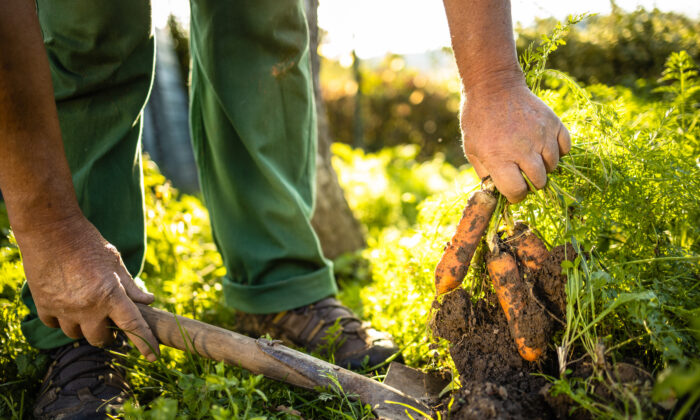People seeking a mental health boost might just find the answer in the great outdoors. New research shows that when doctors “prescribe” nature-based activities, like gardening and farming, patients experience significant reductions in anxiety and depression while reporting substantial increases in overall happiness. Published in Health & Social Care in the Community, researchers evaluated a green social prescribing program that ran between February 2022 and March 2023 in Humber and North Yorkshire.
Participants were surveyed for their overall life satisfaction and well-being, and the Hospital Anxiety and Depression Scale for symptoms of anxiety and depression. Life satisfaction scores increased from an average of 5.10 to 6.

67 Feelings of personal worth improved from 5.36 to 6.84 Happiness levels rose from 5.
15 to 6.71 Anxiety levels decreased from 5.35 to 4.
06 Participants who engaged in green activities for longer periods of three to four months experienced greater improvements than those who participated for only one to four weeks. Longer participation led to an average increase of 1.27 points in life satisfaction scores and a 1.
35-point improvement in happiness. According to researchers, the reported improvements were similar to those achieved with short-term cognitive behavioral therapy (CBT)—where someone meets one-on-one with a therapist from six weeks to a year or more—suggesting activities in nature could complement or potentially serve as alternatives to traditional therapy approaches. CBT is a form of psychotherapy that helps people identify and change negative thinking and behavioral patterns.
The type of activity also influenced the degree of mental health improvement. Participants in horticultural and care-farming activities showed greater improvements in their sense of worth and happiness than those engaged in sports or creative activities. The positive effects were consistent across all age groups, from 18 to 85, and across both sexes.
“Natural settings, like parks or gardens, help people feel more relaxed and focused because they’re less overwhelming than busy city environments,” she said. Activities like walking, hiking, or gardening get the body moving and boost chemicals in the brain—like endorphins and serotonin—that improve mood and energy. Sunshine exposure during outdoor activities helps the body produce vitamin D, which plays a significant role in maintaining mood stability and supporting overall health.
“Nature also helps you feel more present and mindful, which can lower anxiety and stop negative thoughts from spiraling,” Hafeez added. Psychologically, being in nature can facilitate mindfulness, Dr. Mike McGrath, board-certified psychiatrist and chief clinical officer at The Ohana Addiction Treatment Center in Hawaii, told The Epoch Times.
“This can help us feel more relaxed and calm.” However, he said, while outdoor physical activity can be beneficial, moderate to intense exercise, such as high-intensity interval training, could actually increase stress hormone (cortisol) levels. “Sports, in particular, can be competitive,” he added.
“Which can also increase pressure and stress and raise levels of cortisol.” Although exercising can be helpful for mental and physical health, he added, taking a relaxing nature walk is “simply more calming” than many forms of exercise. Patients can access green social prescribing programs through their primary care provider, by speaking with a “link worker” who can facilitate referrals to local nature-based activities.
These programs often involve connecting people with community gardens, parks, walking groups, or other green spaces, sometimes through community organizations..
Health

Gardening and Farming May Improve Mental Health, Self-Worth: Study

Green social prescribing programs that connect people with nature activities reduce anxiety and increase happiness comparable to other therapies.















